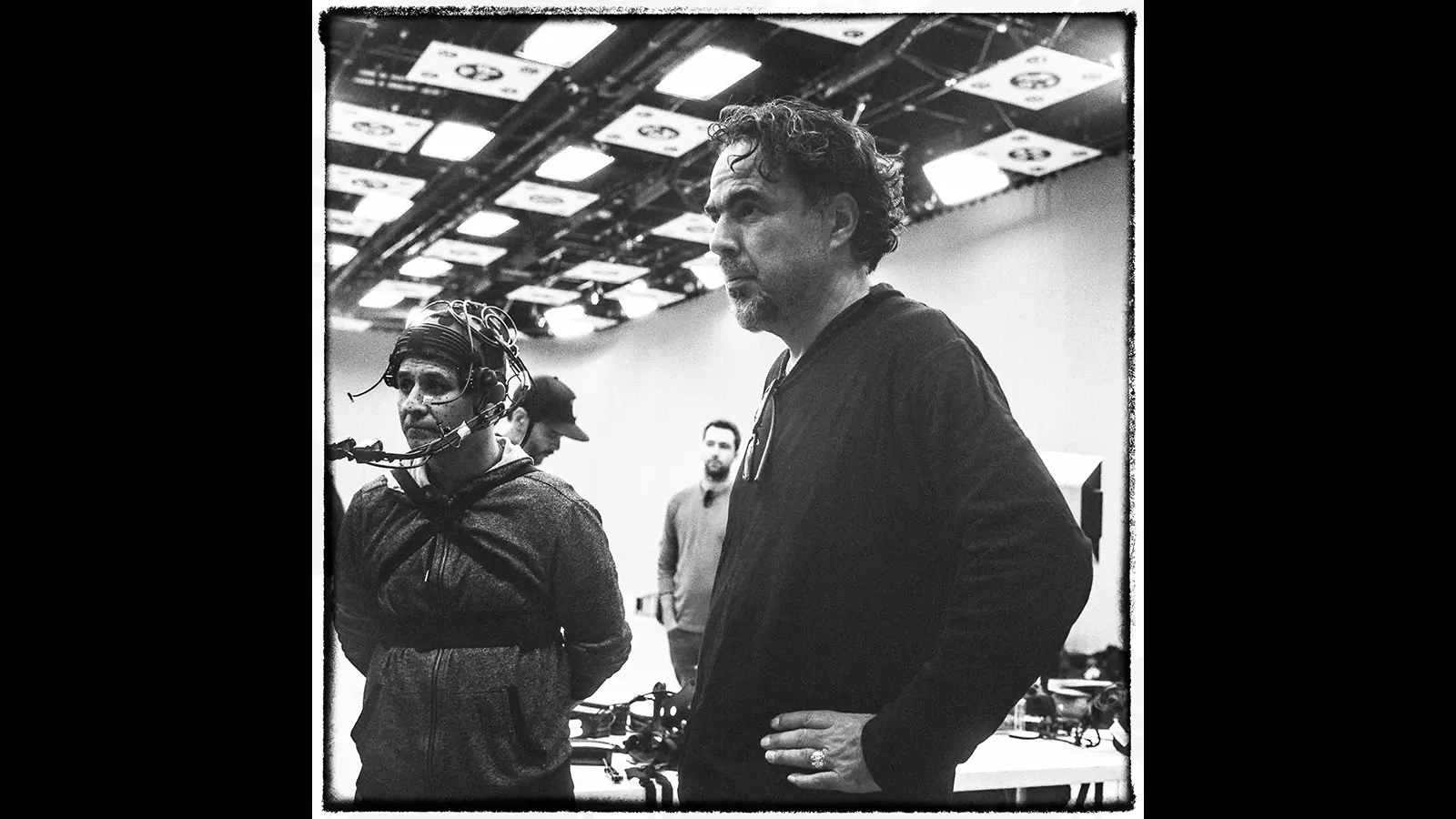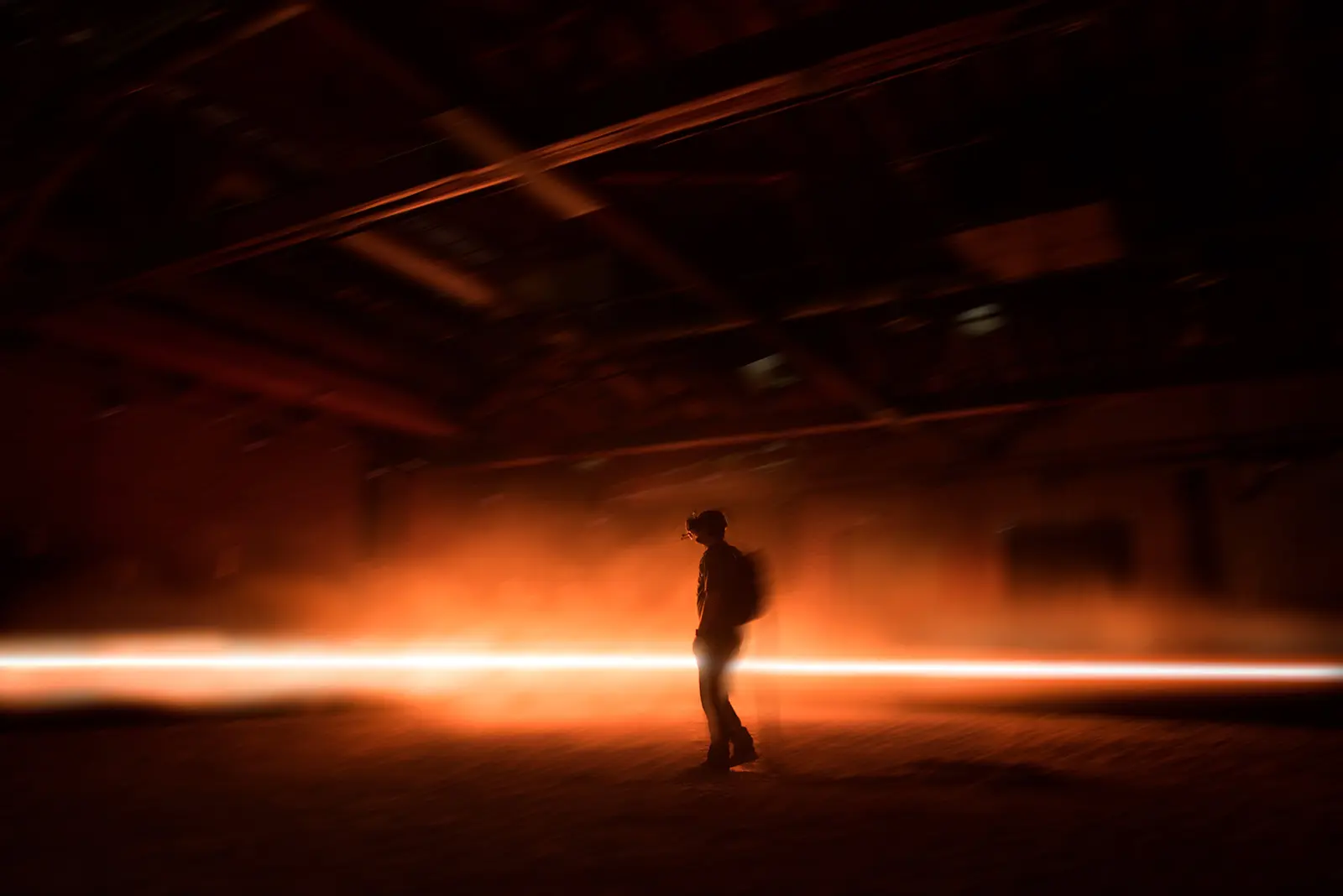My intention was to experiment with VR technology to explore the human condition, in an attempt to break the dictatorship of the frame – within which things are just observed – and claim the space to allow the visitor to go through a direct experience walking in the immigrants’ feet, under their skin, and into their hearts.”
Alejandro G. Iñárritu’sDirector, CARNE y ARENA
Featured Products
1100-LFCOscar-winning director Alejandro G. Iñárritu’s first venture into virtual reality (VR), entitled “CARNE y ARENA (Virtually Present, Physically Invisible)”, immerses a participant in the experience of refugees and immigrants crossing the US-Mexico border.
To create the levels required for close realism, the custom VR technology deployed for the VR installation includes massive Meyer Sound loudspeakers capable of producing very high sound pressure at frequencies extending below the threshold of hearing.
“My intention was to experiment with VR technology to explore the human condition, in an attempt to break the dictatorship of the frame – within which things are just observed – and claim the space to allow the visitor to go through a direct experience walking in the immigrants’ feet, under their skin, and into their hearts,” says Alejandro G. Iñárritu.
The experimental visual installation CARNE y ARENA is a six and a half minute solo experience that reunites Alejandro G. Iñárritu and three-time Academy Award winning cinematographer Emmanuel Lubezki alongside producer Mary Parent. Sound design for the project was by Martin Hernandez, another frequent Iñárritu collaborator, and Skywalker Sound Director of Sound Design Randy Thom at Skywalker Sound’s studios in Marin County, California. Exhibition system development was supervised by Skywalker Director of Engineering Steve Morris.
CARNE y ARENA is produced and financed by Legendary Entertainment and Fondazione Prada, and was given its world premiere during the 70th Festival de Cannes. It is the very first VR project ever chosen as an Official Selection of the film festival. There will be extended exhibitions at Fondazione Prada in Milan and the Los Angeles County Museum of Art as well as the Tlatelolco Cultural Center in Mexico City.
The exhibition is limited to one person at a time, as the solo participant is free to physically move around a space of about 2,500 square feet to experience the action from different perspectives. The broadband audio is heard on Sony Headphones. The headphones alone, however, are unable to transmit the full experience of the powerful low frequencies, notes John Meyer. “Most headphones cannot reproduce clean, powerful sounds below about 50 Hz,” he explains, “and the visceral effect of the extreme lows involves sensations that are processed by the brain independently of the ears.”
The system for the VR installation utilizes two different Meyer Sound systems. One is the 1100-LFC low-frequency control element, a staple in touring systems for artists as diverse as Celine Dion, Ed Sheeran and Metallica. The other is the new VLFC very low frequency control element, recently in production but with limited availability, that is bolstering the extreme low end on the current Metallica tour. The VLFC powerfully reproduces sound only in the single octave that bridges the threshold of hearing, between 13 Hz and 30 Hz.
“We developed the first versions of the VLFC for NASA to use in vibration testing,” says Meyer. “But we decided to continue development for uses in both cinema and concert applications. We have done extensive double-blind testing here in our own Pearson Theatre. There’s no doubt that people have a different psychological response when we add in or remove that extra octave from 13 to 30 Hz.”
Meyer Sound has a long history of developing deep bass systems for cinema applications. One of the company’s first products, the prototype 650 subwoofer, was built in 1979 at the request of Francis Ford Coppola for the 70mm touring version of Apocalypse Now.


